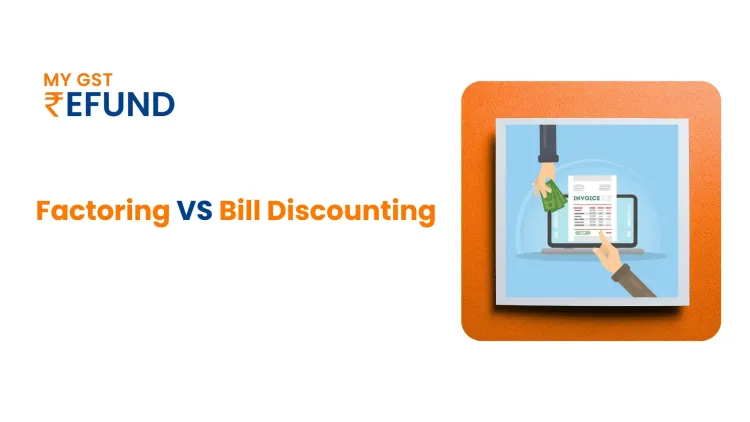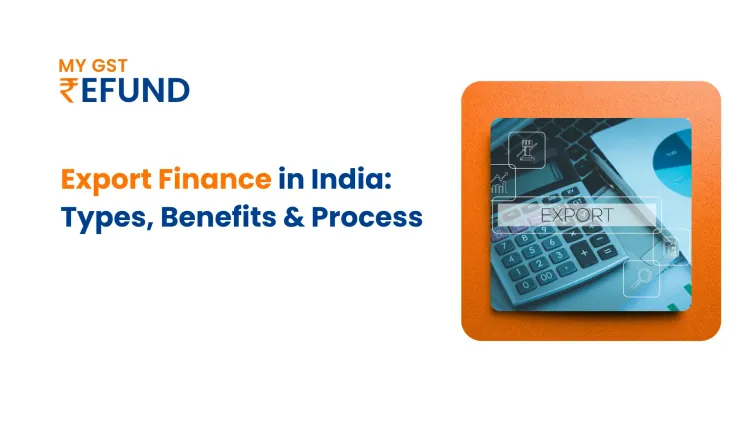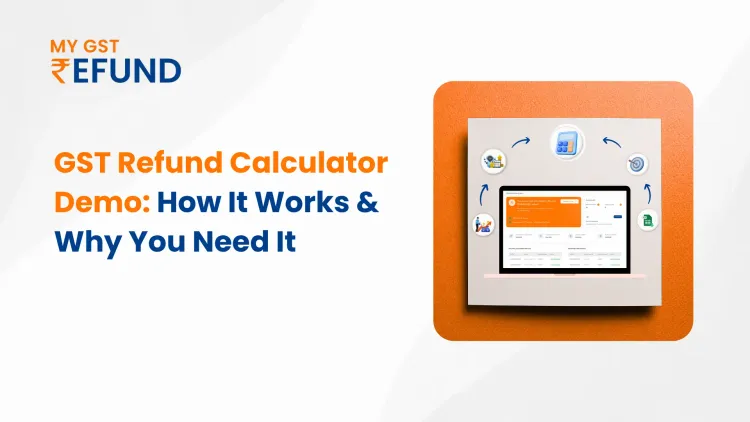A Guide on Input Tax Credit (ITC) Under GST
Published on: Thu Mar 09 2023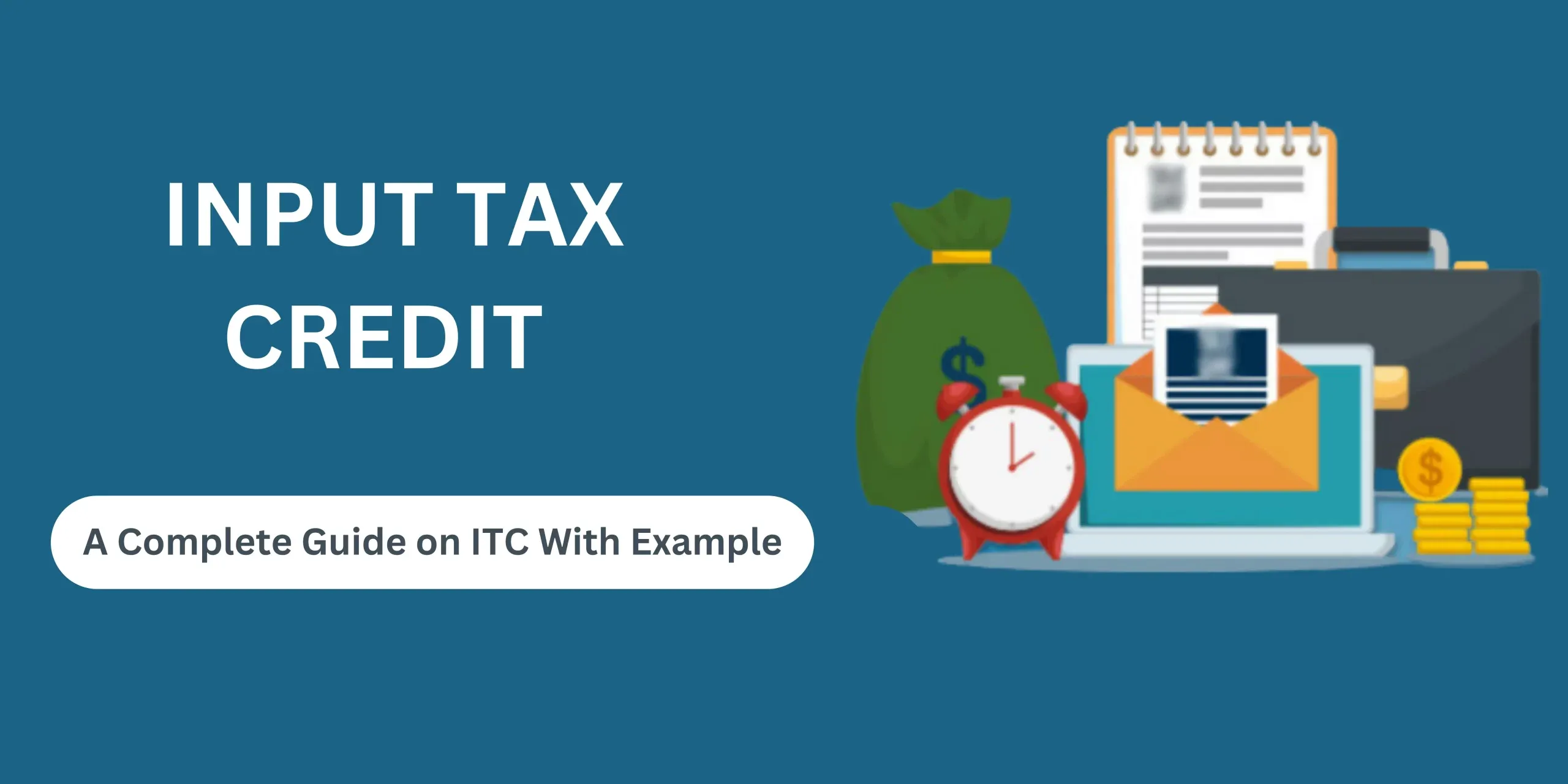
What is Input Tax Credit (ITC)
Meaning of ITC can be understood by breaking the word Input tax credit into following
Input: It Includes, Inputs (Relating to goods other than capital goods), Input services, and Capital Goods which are used/Intended to be used in the course or furtherance of business.
The word Input tax means, GST paid by a registered person under Forward charge/Reverse charge and it includes Central tax, State tax, Union territory tax, and IGST paid on Imports however it does not include taxes paid under Composition Levy.
Input Tax Credit: Means Taking the Credit of Input Tax at the time of Output tax payment [Sec 2(63)]
Let’s Understand with the help of the example
Let’s say that a manufacturer purchases raw materials worth Rs. 1,00,000 and pays a GST of Rs. 18,000 on the purchase. The manufacturer then uses these raw materials to produce finished goods, which are sold for Rs. 2,00,000 with a GST of Rs. 36,000.
In this case, the manufacturer can claim Input Tax Credit of Rs. 18,000 (the GST paid on the purchase of raw materials) against the GST liability of Rs. 36,000 on the sale of finished goods. So, the manufacturer only needs to pay Rs. 18,000 in GST to the government, instead of the full GST liability of Rs. 36,000.
Basic condition for claiming Input Tax credit
- The business must be registered under GST.
- The goods or services for which the credit is being claimed must have been used or intended to be used for business purposes.
- The supplier of goods or services must have deposited the GST charged on the supply with the government.
- The business must have received a tax invoice or debit note issued by the supplier, which contains the necessary details such as the GST registration number of the supplier, the GSTIN of the recipient, description of goods or services, quantity, value, tax charged, etc.
- The business must have filed its GST returns in a timely manner.
Documents on which Input Tax Credit may be claimed
- Invoice: Businesses can claim Input Tax Credit for the taxes paid on goods and services purchased for business purposes, based on the invoices issued by the supplier.
- Debit note: If there is an increase in the value of the goods or services or an increase in the tax rate after the issuance of the invoice, the supplier can issue a debit note to the recipient. Businesses can claim Input Tax Credit on the taxes paid on such debit notes.
- Bill of entry: For businesses engaged in the import of goods, Input Tax Credit can be claimed on the taxes paid on the customs duty paid at the time of importation. The Bill of Entry serves as proof of the payment of such taxes.
- Input Service Distributor invoice: In the case of businesses that have separate business units or branches, Input Tax Credit can be claimed based on the invoices issued by the Input Service Distributor (ISD) for the services received by the various units or branches.
- Delivery challan: In the case of goods transported without an invoice, such as for job work, businesses can claim Input Tax Credit based on the delivery challan issued by the supplier.
Reversal of Input Tax Credit (ITC)
Under the Goods and Services Tax (GST) regime, Input Tax Credit (ITC) can be claimed by businesses for the taxes paid on inputs used for producing or supplying goods or services. However, there are certain circumstances under which the ITC claimed by a business may need to be reversed or blocked.
Where ITC is reversed
ITC reversal amount due to Rules 42 & 43 or for any other reasons in Table 4B of the GSTR-3B. Also, you have to make annual calculations on ITC reversal and mention the same in GSTR-9.
Read our detailed blog on Input Tax Credit Rule 36(4)
Time limit for claiming ITC
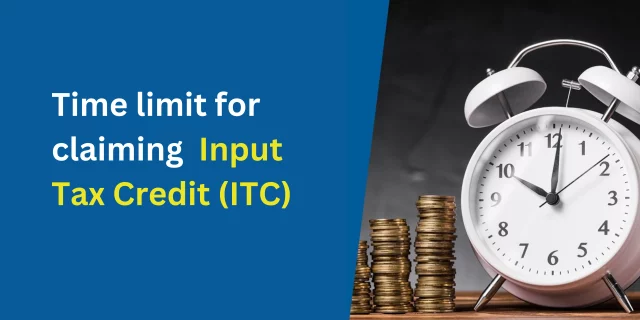
The recipient of goods or services can claim ITC in their monthly or quarterly return for the tax period in which they received the invoice or the debit note, whichever is earlier.
The due date for filing of annual return for a particular financial year is 31st December of the next financial year or the actual date of filing of the annual return whichever is earlier.
How To Avail Credit Where Tax Has Been Paid Under Reverse Charge Mechanism (RCM)
Eligibility: The recipient can claim the credit of tax paid under the reverse charge mechanism only if they are registered under GST.
Inclusion in GSTR-2A: The tax paid by the recipient under the reverse charge mechanism will be reflected in their GSTR-2A, which is a system-generated statement containing the details of all inward supplies of goods or services. The recipient can view the tax paid under the reverse charge mechanism in their GSTR-2A and reconcile it with their records.
Claiming Credit: The recipient can claim the credit of tax paid under the reverse charge mechanism in their GSTR-3B, which is a monthly return that needs to be filed by registered taxpayers. The credit can be claimed in the same month in which the tax was paid, subject to the condition that the tax invoice has been received by the recipient.
Utilization: The credit of tax paid under the reverse charge mechanism can be utilized for payment of the output tax liability of the recipient. The credit cannot be used for payment of tax liability on exempt supplies.
Special Circumstances in which ITC may be claimed
Inputs sent for job work: If a registered person sends inputs or capital goods to a job worker for further processing or testing, they can claim the ITC on such inputs or capital goods.
Inputs used for making exempt supplies: If a registered person is engaged in making both taxable and exempt supplies, they can claim the ITC on inputs used for making taxable supplies.
Inputs used for making zero-rated supplies: If a registered person is engaged in making zero-rated supplies, i.e., supplies to SEZ (Special Economic Zones) or exports, they can claim the ITC on inputs used for making such supplies.
Inputs used for branch transfers: If a registered person has multiple branches, they can claim ITC on inputs used for transfers between branches.
Ineligible Input tax credit or items where ITC is not allowed
Motor Vehicles: ITC is not allowed for motor vehicles and other conveyances except when they are used for the furtherance of business or in the case of transport of passengers or goods.
Food and beverages, outdoor catering, beauty treatment, health services, etc.: ITC is not allowed on goods or services used for personal consumption or employees such as food and beverages, outdoor catering, beauty treatment, health services, etc.
Membership of club, health, and fitness center: ITC is not allowed on the membership of a club, health and fitness center, and such other services which are not directly related to the business.
Rent-a-cab, life insurance, and health insurance: ITC is not allowed on rent-a-cab services, life insurance, and health insurance except where it is mandatory under any law.
Works contract services for the construction of immovable property: ITC is not allowed on works contract services for the construction of an immovable property (except in certain cases).
Input Tax Credit Set-Off Rules
As per Rule 88A of CGST Rules, following is the order for the Utilisation of ITC
| Payment for | 1st set off from | 2nd set off from |
| IGST | IGST Credit | Then CGST & SGST credit in any Order |
| CGST | IGST Credit | CGST Credit |
| SGST | IGST Credit | SGST Credit |
Conclusion: From above we can see that IGST credit should be exhausted before using any other credit balance.
Let us understand this with an example:
We have the credit of IGST – Rs. 200, CGST – Rs. 50, SGST – Rs. 50 and Output liability of IGST – Rs. 100, CGST – Rs. 100, SGST – Rs. 100. Now Calculate the Order of utilisation as per the above rule?
Ans: IGST credit of 200 shall be utilized towards the payment of output liability of Rs. 100 of IGST and Rs. 100 of CGST & This will lead to the accumulation of credit under CGST of Rs. 50 that can be carried forward along with this the SGST output liability of Rs. 50 will remain which shall be paid in cash.
Time limit for claiming ITC under GST:
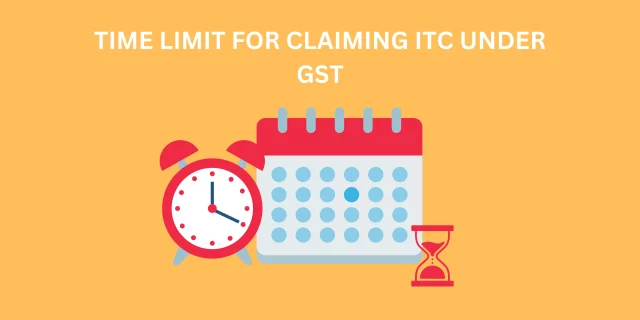
As per Sec 16(4) of the CGST act, the Maximum time Limit to claim ITC shall be earlier than the following:
- Due date of monthly return u/s 39 for the month of September of next Financial year (or)
- Furnishing the relevant Annual Return.
However, as per Notification no.18/2022 of Central Tax dt:28-09-2022, the Maximum time Limit to claim ITC shall be earlier than the following:
- Thirtieth day of November of next Financial year (or)
- Furnishing the relevant Annual Return.
Reversal of Input Tax Credit under GST
Under the Goods and Services Tax (GST) regime, Input Tax Credit (ITC) can be claimed by businesses for the taxes paid on inputs used for the production or supply of goods or services. However, there are certain circumstances under which the ITC claimed by a business may need to be reversed or blocked.
FAQ’s
What is input tax credit in GST?
Input tax credit (ITC) is the credit that a registered person can claim for the tax paid on purchases of goods and/or services used for business purposes. The ITC can be claimed against the output tax liability.
Who can claim input tax credit in GST?
A registered person who is eligible for input tax credit can claim it. To claim ITC, the person must be registered under GST, and the goods or services purchased must be used or intended to be used for business purposes.
What are the conditions for claiming input tax credit in GST?
To claim input tax credit in GST, the following conditions must be satisfied:
The person claiming the credit must be registered under GST.
The goods or services on which ITC is claimed must have been used or intended to be used for business purposes.
The person claiming the credit must have a valid tax invoice or debit note or any other prescribed document.
The tax charged on the invoice or debit note must have been paid to the government by the supplier.
The person claiming the credit must have received the goods or services.
The return for the relevant period must have been filed.
Can input tax credit be claimed for all purchases?
No, input tax credit cannot be claimed for all purchases. The following are some of the purchases for which ITC cannot be claimed:
Motor vehicles and other conveyances except when used for transportation of goods or passengers or for providing taxable services like driving school.
Goods and/or services used for personal consumption or for non-business purposes.
Goods and/or services used for exempt supplies.
Goods and/or services on which GST has not been paid or have been paid at a concessional rate.
Can input tax credit be claimed for purchases made before registration under GST?
No, input tax credit cannot be claimed for purchases made before registration under GST.
How is input tax credit claimed in GST?
Input tax credit can be claimed in GST by showing the details of the eligible ITC in the relevant column of the GST return and reducing the amount of ITC claimed from the output tax liability.
Can input tax credit be claimed in the next financial year?
Yes, input tax credit can be claimed in the next financial year if it has not been claimed in the previous financial year.
What happens if input tax credit is claimed incorrectly in GST?
If input tax credit is claimed incorrectly in GST, it can lead to recovery of the credit with interest, penalty, and/or prosecution. Therefore, it is important to claim ITC correctly and ensure that all conditions for claiming ITC are satisfied.
Are you Looking for GST Refund Service? MYGST REFUND offers GST refunds on business, Refund for exporters , TCS And TDS refund, Refund under Inverted Duty Structure, GST Notices & Technical Replies and many more if your GST application is rejected. Get in touch with us today.
Related Posts


